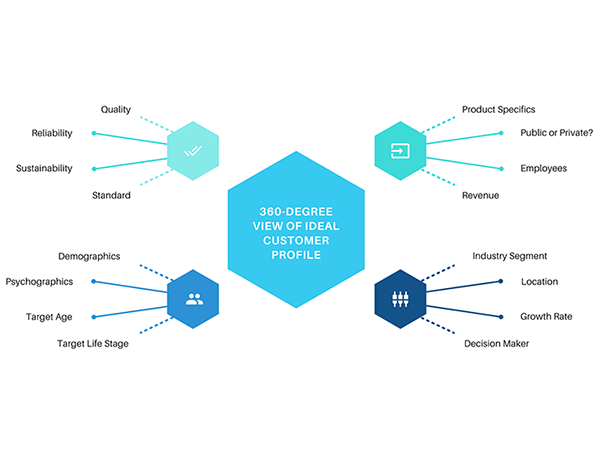KEY POINTS
- The rise of Data Protection Strategies for a Secure Marketing Campaign
- Comprehending the Importance of Data Privacy Policies for Marketers
- Ace your Marketing Campaigns with Privacy Compliant Strategies
- How can Marketers reconcile to the changes in Data Privacy Regulations?
What is a Mailing List? How are Mailing Lists beneficial for Marketing Approaches?
Mailing List is a comprehensive collection of contact details of prospects ideal to market your products and services. A successful marketing campaign can be achieved with permission-based mailing lists with opt-in contacts. Marketing with mailing lists are beneficial:
- Enhance your sales revenue
- Increased ROI
- Expand your brand reach
- Higher customer retention rate
- Smooth lead generation process
One of the most cost-effective ways to expand your business is to buy a mailing list. Email marketing offers an opportunity to communicate directly with your potential customers. Segmentation is crucial when it comes to marketing with business email lists. It is not necessary to send your marketing messages to all the contacts. Your mailing list can be segmented based on your business requirements, enhancing your response rate.
The rise of Data Protection Strategies for a Secure Marketing Campaign
Consumers are highly aware of their data than they have ever been. As a result, consumers expect businesses to collect and use data safely and wisely. Marketers have taken several steps to comply with the new rules, including opt-in checkboxes on email forms that ask for consent before adding users to a mailing list, making privacy statements easily accessible, and creating dedicated web pages where users can submit requests to access, modify, or delete their personal information.
While data regulations impose limitations on how businesses handle customer data, they do not necessarily limit marketers. Organizations can succeed in the new era of consumer data protection if they invest in marketing solutions that are agile, adaptive, and capable of keeping up with shifting business changes.
Comprehending the Importance of Data Privacy Policies for Marketers
The data protection regulation gives complete authority to consumers to secure their data online. Organizations all across the world are subject to data regulations. Small businesses and major organizations must adjust in the same way. This rule also applies to non-profit and government firms that utilize personal data for marketing purposes. The application of data policy rules may seem severe on the surface for marketers, especially for small firms or independent practitioners. In reality, marketers need to be concerned about data permission, data focus, and data access.
When it comes to third parties collecting or processing information about the consumers, they have certain listed rights:
- Individuals have the right to demand that businesses provide precisely what information they have on them.
- The right to request the deletion of gathered data.
- Individuals have the right to request that their data not be sold by companies.
- The right to refuse to enable data access in the first place usually necessitates an affirmative opt-in.
- The right to sue if your personal information is stolen while it is stored in an unencrypted manner.
Ace your Marketing Campaigns with Reliable Strategies
Multiple laws and guidelines exist to secure data and use email marketing for commercial intentions. If you don't follow them as a marketer, you risk facing dire outcomes that could impact your business. These rules are aimed mostly at spammers and are intended to prevent them from obtaining consumers email addresses without their consent and spamming them with unsolicited emails. However, there are a few quirks in the regulations that even the best-intentioned marketers might inadvertently break, so it's critical to know how to comply.
The following is a brief list that marketers like you can use to ensure that your efforts comply with all applicable regulations around the world:
1. Verify for consented mailing lists before proceeding with email marketing
Ensure you market your services or products to the consumers who have consented to send them marketing emails. The need for permission is vital to follow the regulations set forth by data privacy laws.
2. Notify your email as a promotional message
The CAN-SPAM Act requires you to disclose that your message is an advertisement clearly and prominently. Avoid misleading your recipients into thinking you're sending them a personal email on purpose.
3. Specify your mailing address clearly
Email marketing rules in most countries require you to include a valid postal address for your company in your email messages. This can be your present street address, a postbox address, or a commercial registered address.
4. Opt-out requests need to be obeyed
The data privacy law requires marketers to honor a recipient's opt-out request without charging any fee for doing so. You can't compel the recipient to provide you with any personally-identifying information other than their email address. Alternatively, have the receiver opt-out by sending a reply email or visiting a specific page on a website.
How can Marketers reconcile to the changes in Data Privacy Regulations?
Marketers can develop relevant, robust, and conversion-oriented content to stay connected to the developments of marketing mailing lists. Traditional marketing methods involve directed prospect reach with permission-based marketing approaches to assist them in making purchasing decisions. It's crucial to understand the regulations surrounding email marketing and how to comply with them before you start delivering campaigns for your company.
- Anti-spam procedures should be familiar to every marketer
- Before sending out emails, learn about GDPR and the CAN-SPAM Act
Even for promotional efforts, consent is one of the most crucial things to remember with email marketing. For opt-in offers and other similar techniques, be sure you have authorization from subscribers. In some cases, you may have to get permission twice in some circumstances.



































